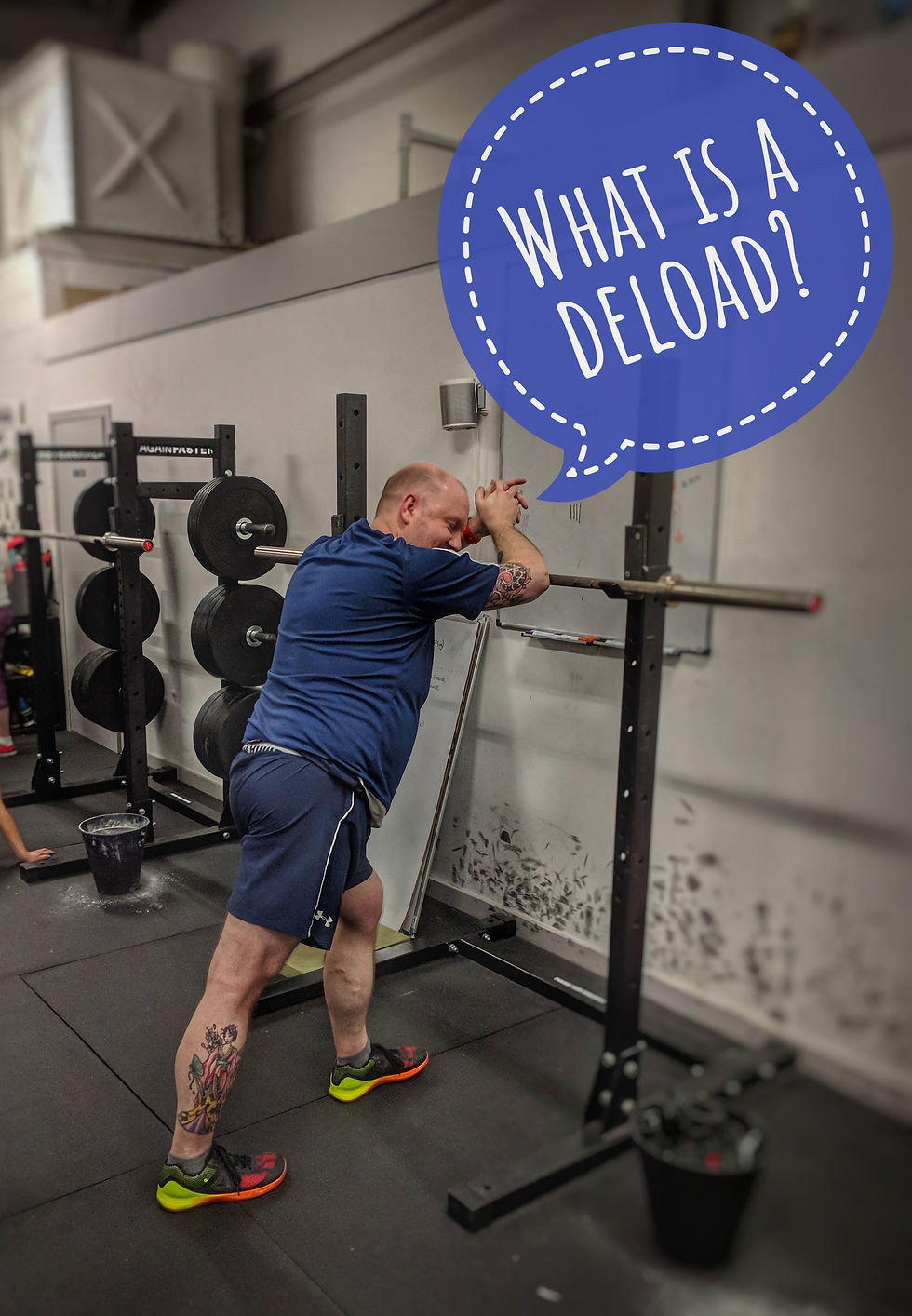What Is A Deload?
- Andy Graydon
- Mar 4, 2018
- 2 min read

What is a deload?
It is simply a short period of recovery. Usually a deload will last about a week, and you’ll be lifting a little less than usual. As long as the overall volume and intensity is low, you’re doing it right.
Some people see deloads as a waste of time as they aren’t pushing their body to the max, and therefore this means that your body won’t make any adaptations and get stronger.
Wrong!
Sometimes a deload is just what you need to allow proper recovery from your last 4-8 weeks of hard training. Another bonus is that deloads are also fantastic options to rest and recover, before rebuilding and smashing through your plateaus.
How do I deload?
Method 1: The most common method is to reduce the weight you’re lifting for this week. Try to keep it between 40-60% - keep the weight and sets nice and low. It might seem boring, but use this week to really focus on technique. Sometimes when the weight goes up, our form starts to crumble. This is a great opportunity to dial in great technique!
Method 2:
This is slightly less common, though it’s used by a lot of competitive strength athletes, so don’t immediately discredit it! In this method the load you lift will be kept the same but the reps and sets will decrease. If you were lifting 100kg for 5 sets of 5 reps the previous week, on your deload week you might want to stick at 100kg, but perform a single set of 5 reps, or perform a few doubles or singles. This still allows you to handle a decent weight, but the volume is a lot less than your body is used to.
There are other methods that some coaches employ for their athletes, however these two are the most common. Sometimes deloads involve changing up exercise selection, though it can be a bit more tough to regulate a decrease in volume/intensity as the movements are different.
When should you deload?
If you frequent the powerlifting classes at AG, everyone's friendly neighbourhood Juan programmes the deloads for you! Any other decent programme that you might follow should include deload weeks, so you don’t need to worry about this.
If you’re planning your own training though, there are a few key signs to look out for as an indication of when you should implement a deload.
Sometimes you may physically feel yourself getting weaker - this is your body telling you to give it a break. Take a short week off lifting heavy and focus on technique. Other times you might feel a little joint pain - this is almost to be expected after weight training for extended periods of time. Again, take a break and reduce the load you’re lifting for your deload week to allow your body to recover. No, you can’t skip them...
Lastly, please don’t think you can get away with skipping your deload! All of your heavy lifting will likely catch up with you and you’ll regret it. It’s like a prehab method to ensure that your body can recover and continue to make constant improvements and adaptations. The safest thing to do is to deload every 4-6 weeks and reap the rewards!



Comments